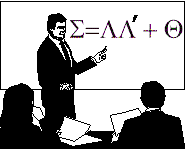
SCS Short Courses, Spring 1995
 [Registration Fees]
[Registration Fees]
 [Registration Form]
[Registration Form]
- Instructor:
- Peggy Ng
- Dates:
- May 4, 11, 18, 25, June 8
- Time:
- Thursdays 10:00 a.m. - 1:00 p.m.
- Location:
- Room T107 Steacie Science Library
- Enrolment Limit:
- 30
The Statistical Analysis System (SAS) is a widely used general
purpose data analysis program noted for its flexibility and its
variety of statistical procedures. SAS runs on many computing
platforms, from mainframes to personal computers. This course
provides a basic introduction to SAS under the Windows
environment.
The course consists of three parts, which may be taken individually
or as a whole:
I Windows Pre-session: The pre-session is intended to make the
SAS sessions accessible to those without previous experience with
Windows on personal computers. Only the bare essentials of
Windows will be covered; those familiar with Windows need not
attend.
II Basic Introduction: Sessions One and Two provide an overview
of SAS and its underlying logic; an explanation of the use of the
Display Manager System to run a SAS job; an introduction to the
SAS Data step for reading, transforming, and storing data; and a
demonstration of how statistical analyses may be performed in SAS
Proc (procedure) steps.
III Intermediate Topics: Sessions Three and Four will concentrate
on SAS programming techniques to modify data and enhance SAS
output. As well, more statistical procedures will be introduced.
- Instructor:
- Mirka Ondrack
- Dates:
- Fridays - May 5, 12, 19, 26, June 16
- Time:
- FRIDAYS, 10:00 a.m. - 1:30 p.m
- Location:
- Room T107 Steacie Science Library
- Enrolment Limit:
- 30
The Statistical Package for the Social Sciences (SPSS) is a very
popular data analysis system which has been in use since 1965.
Release 4 of SPSS, the latest version of this program, is
available at York on the CMS, MVS, and VAX (Orion) systems.
Version 4 of SPSS for DOS-based microcomputers and version
6 of SPSS for Windows are also available.
This course consists of three parts, which may be taken
individually or as a whole:
I Windows Pre-session: The pre-session is intended to make the
SPSS sessions accessible to those without previous experience
with Windows on personal computers. Only the bare essentials
of Microsoft Windows will be covered.
II Basic Introduction: Session One is an elementary
introduction to statistical computer programs, computing
concepts, and the essentials of SPSS. At the end of the first
session, participants should be able to run very simple
programs, including some basic descriptive statistical
procedures. Session Two will cover first-session topics in greater
detail, concentrating on data definition facilities and various
ways of formatting data.
III Intermediate Topics: Sessions Three and Four will
introduce data modification, transformations, and functions.
Session Five will cover the use of SPSS system files.
- Instructor:
- John Fox
- Dates:
- May 17, May 24
- Time:
- Wednesdays, 2:30pm - 4:30pm
- Location:
- tba
- Enrolment Limit:
- 30
Lisp-Stat is an object-oriented statistical computing environment
based upon the Lisp programming language, and described in a book
published by Luke Tierney in 1990. Lisp-Stat is especially well
suited to developing graphical user interfaces for statistical
software and to creating dynamic statistical graphs. Lisp-Stat is
distributed free of charge by Tierney, and runs on Macs, on PCs
under Windows, and on a variety of Unix workstations. R-code is
an application written in Lisp-Stat and described in Cook and
Weisberg's recent text, An Introduction to Regression Graphics.
R-code implements a wide range of modern statistical graphics
associated with regression analysis, and illustrates the power of
Lisp-Stat for developing statistical software.
The goal of this short course is to demonstrate the use of R-code
and to explain some of the basics of programming in Lisp-Stat.
- Instructor:
- Michael Friendly
- Dates:
- May 31, June 7
- Time:
- Wednesdays, 1:30-4:30pm
- Location:
- Admin Studies, B037
- Enrolment Limit:
- 30
Exploratory Data Analysis (EDA) refers to a collection of
techniques, often informal and graphical, for examining
data closely. This short course will survey a number of
the more useful techniques with an emphasis on -
- Data displays which reveal aspects of data not easily
captured in numerical summaries or tabular displays.
- Diagnostic displays which help the viewer decide if
assumptions of an analysis are met.
The following topics will be discussed:
- Examining distributions-- stem & leaf plots, boxplots,
probability plots, data transformations.
- Examining relationships-- enhanced scatterplots, smoothing
scatterplots.
- Regression diagnostics-- residual plots, detecting influential
observations, partial regression plots.
- Multivariate data displays-- stars & profiles, biplots,
detecting multivariate outliers
 Go up to the SCS home page
Go up to the SCS home page